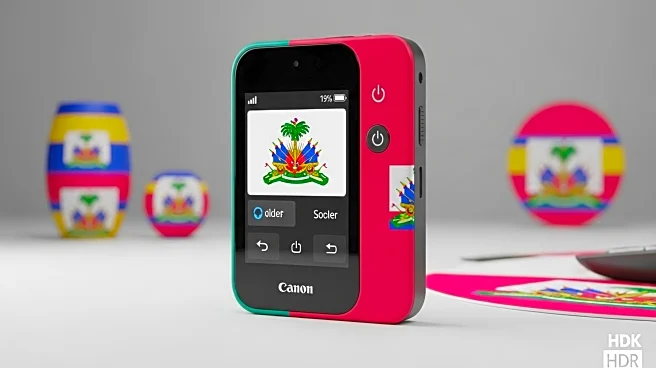What is the story about?
What's Happening?
Pocketalk, a translation services company, has developed a two-way Haitian Creole model that translates both text and voice, addressing the need for translation of less-common languages in the U.S. The initiative was driven by requests from healthcare systems, governments, and educational institutions. The development process involved collaboration with Kerby Magophy, a Haitian Creole language expert, who contributed by recording his voice to teach the language model pronunciation, grammar, and sentence structure. This effort aims to improve accessibility for Haitian Creole speakers, particularly in time-sensitive situations.
Why It's Important?
The development of AI translation for Haitian Creole is significant as it addresses the challenges faced by public agencies in serving diverse linguistic communities. By providing accurate translation services, Pocketalk enhances communication and accessibility for Haitian Creole speakers, potentially improving their access to healthcare, government services, and education. This initiative also highlights the importance of human expertise in developing AI models, ensuring quality and cultural sensitivity in translation services. The broader impact includes fostering better relationships between different cultural and linguistic groups, reducing prejudice and racism.
What's Next?
Pocketalk plans to expand its translation capabilities beyond its current 92 languages, leveraging the experience gained from developing the Haitian Creole model. The company is also exploring opportunities to integrate its software into other platforms, enhancing its enterprise solutions. This expansion could lead to increased accessibility for more rare languages, further bridging communication gaps and fostering inclusivity. As the company continues to innovate, it may face challenges in balancing speed and quality, but remains committed to delivering reliable translation services.
Beyond the Headlines
The development of AI-supported translation services has ethical implications, particularly concerning the potential replacement of human translators. While technology can enhance accessibility, it is crucial to maintain the quality and cultural sensitivity that human translators provide. Additionally, the initiative underscores the historical ties between Haiti and the U.S., highlighting the role of Haitian soldiers in the Revolutionary War. By improving understanding between different cultures, translation services can contribute to stronger international relationships and cooperation.
















